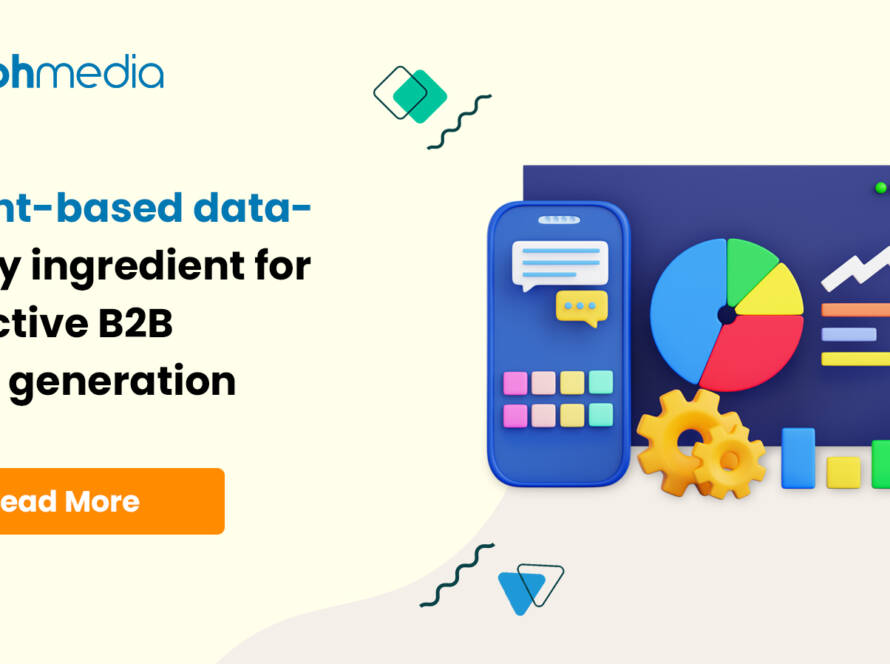Do you want to improve your B2B demand generation strategies?
Everything comes down to how well your sales and marketing teams work collaboratively on successful campaigns that appeal to company executives or key decision-makers.
And for all this data is the key. It sets the tone and helps in the identification and communication of business value to other businesses. But, let’s face it, data management can be difficult. That is why, in this blog, we will provide some useful tips for data management as well as highlight other important roles of data in B2B demand generation. Prepare to ramp up your B2B demand generation!
Understanding B2B Demand Generation
B2B demand generation is the way to go if you want to generate interest in your product or service among prospects. It involves working together with your marketing and sales teams to create persuasive campaigns that appeal to your target audience. However, the B2B purchasing process can be complex, and decision-makers are often risk-averse, making demand generation difficult. This is where the concept of lead scoring comes into play. You can prioritise leads that are most likely to convert into customers and automate the process of qualifying and prioritising leads by assigning a numerical value to a lead based on specific characteristics that indicate their level of interest. Lead scoring can help you increase your ROI and drive sales by optimising your sales and marketing efforts.
How Data Can Supercharge Your B2B Demand Generation
Data allows companies to really understand their target market and develop tailored messages that will resonate with them. With precise and complete data, businesses can generate high-quality leads, improve their conversion rates, and ultimately drive more sales.
But data isn’t just important for generating leads and sales; it also gives organizations the ability to evaluate the effectiveness of their marketing initiatives. By analyzing data, companies can make data-driven decisions to enhance their marketing performance and ensure they’re getting the most bang for their buck.
So, to sum it up, data is absolutely essential for B2B demand generation. It enables businesses to connect with their target market, drive sales, and improve their marketing performance. It’s clear that if you want to succeed in today’s competitive business environment, you need to be making the most of the data that’s available to you!
Tips for Effective Data Management
Let us reaffirm: data is king. It is the foundation upon which all successful campaigns are built. However, gathering and managing data can be a daunting task, with numerous potential pitfalls along the way. Read on for some pointers on how to improve your data management for B2B marketing and make your campaigns as effective as possible.
Data Collection and Organization
Systematic data collection and organization are the first steps in effective data management. This includes collecting all relevant information about your prospects and clients, such as their name, company, job title, contact information, and any other relevant data points.
Cleaning and Maintaining Data
Once you’ve collected your data, you should clean and maintain it on a regular basis. This includes removing duplicates and incorrect or outdated data and keeping it up-to-date with any changes or updates.
Choose a Reputable List Provider
If you want to expand your database or acquire new leads, you must select a reputable list provider. Look for providers who follow opt-out screening, have industry endorsements, and provide specialized data sets that meet your specific requirements.
Effective Data Analysis and Use
To get the most out of your data, you must analyze it. This entails identifying patterns, trends, and insights that can be used to inform your marketing strategy and improve targeting. Make use of data visualization tools to assist you in identifying key insights and making informed decisions.
Using Automation Tools to Manage Data
Finally, consider using data management automation tools to help you manage your data more efficiently. This includes data cleansing, segmentation, and personalization tools, as well as automated workflows and triggers to help you streamline your marketing processes and increase ROI.
In conclusion, data management is vital for the achievement of your B2B marketing efforts. By implementing these tips, you can build a solid foundation for your ABM and ABS campaigns and achieve better results. Check out our blog for more information and tips on effective B2B marketing strategies. Start implementing these tips right away and see how much of a difference they can make in your business!



